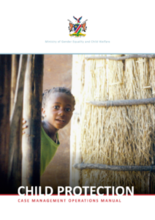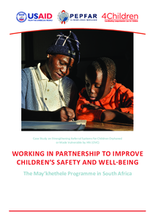Displaying 271 - 280 of 505
This study examined the four factors that might bias child risk assessment and recommendation of treatment for children at high risk among Arab social workers in Israel.
Drawing on in-depth semi-structured interviews with 37 caregivers in two Children's Homes in Ghana, this study sought to explore caregivers' suggestions of solutions to barriers in childcare.
In this study, using paired observations of group supervision and family meetings alongside interviews with parents, the authors explored the link between supervision, practice, and engagement.
This paper asks the question "what contribution are kin and other informal social support networks providing to the care and safety of children of such families?" The paper presents findings from 15 families receiving services from the Department of Social Welfare in Sekondi, Ghana.
The aim of this article is to study child welfare workers' individual and collective experiences of and expectations about their occupational role and responsibilities in their administrative and relational work with children and youth in foster care.
This report from the Global Social Service Workforce Alliance highlights the many ways that the social service workforce positively impacts the lives of children and families affected by violence.
The article examines how 36 child welfare caseworkers in 6 different teams in Norway investigate, assess, and make decisions at the phase of an incoming referral.
In this webinar from RISE Learning Network, the speaker, Yashoda Upreti shares how Terre des Hommes in Nepal has implemented a case management program.
This Manual includes background information, standard operating procedures with documentation tools and job aids on case management.
This case study is one in a series of case studies highlighting different aspects of a case management system and referral mechanisms utilized by OVC programs. The case study looks at the work of the Children in Distress Network (CINDI) in the uMgungundlovu District of KwaZulu-Natal Province (KZN) of South Africa.



